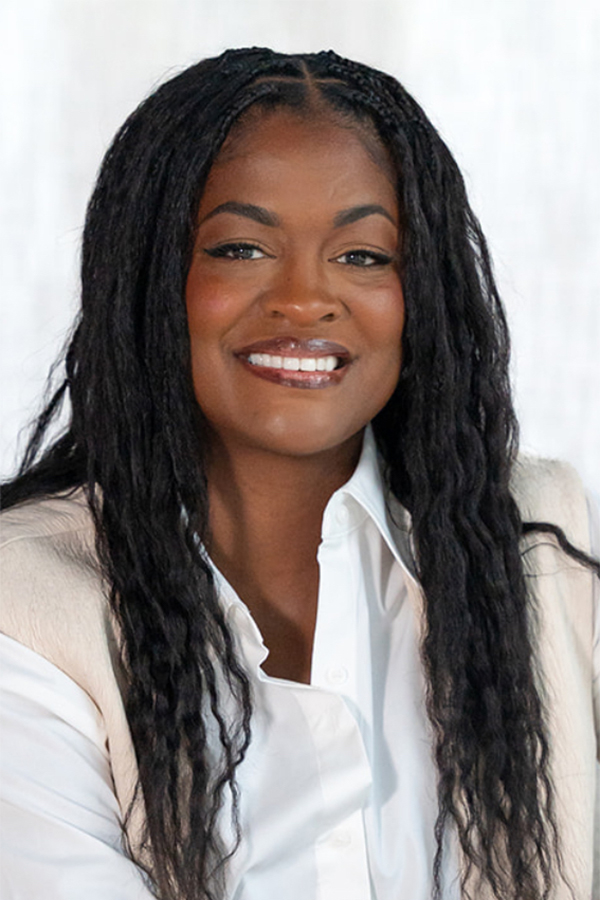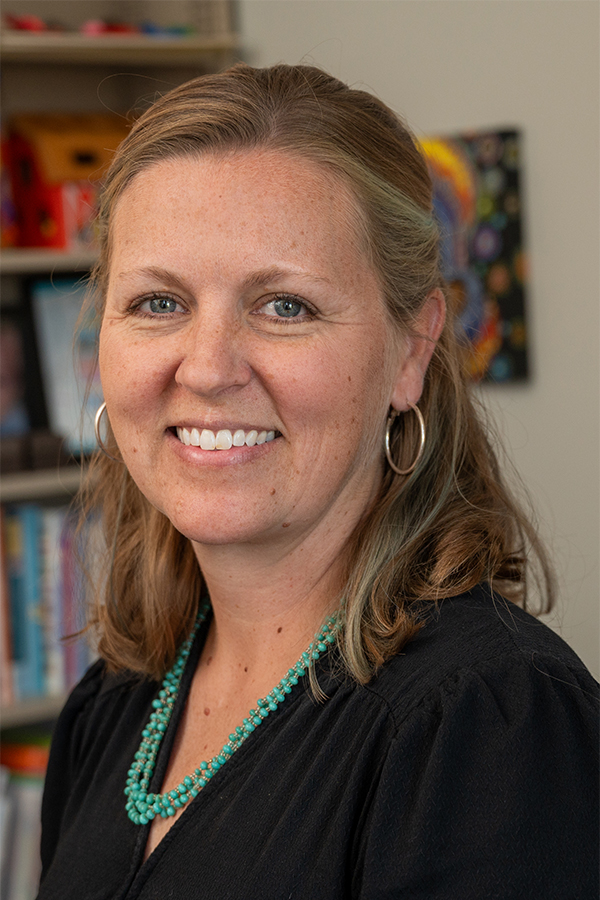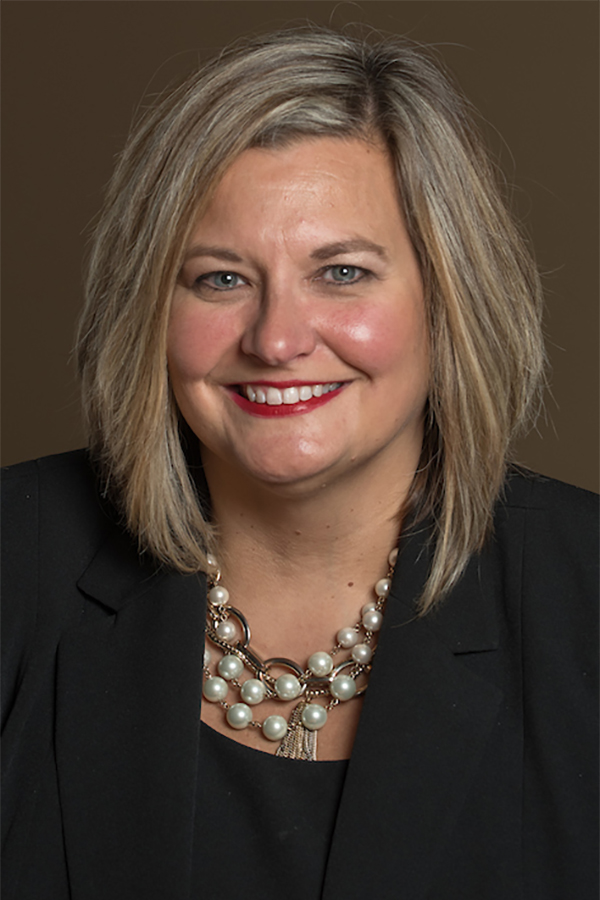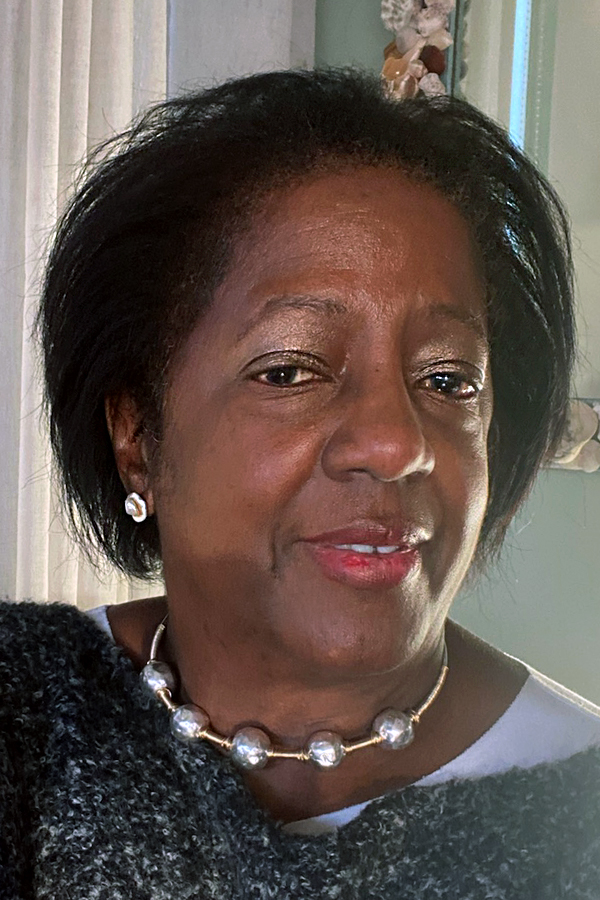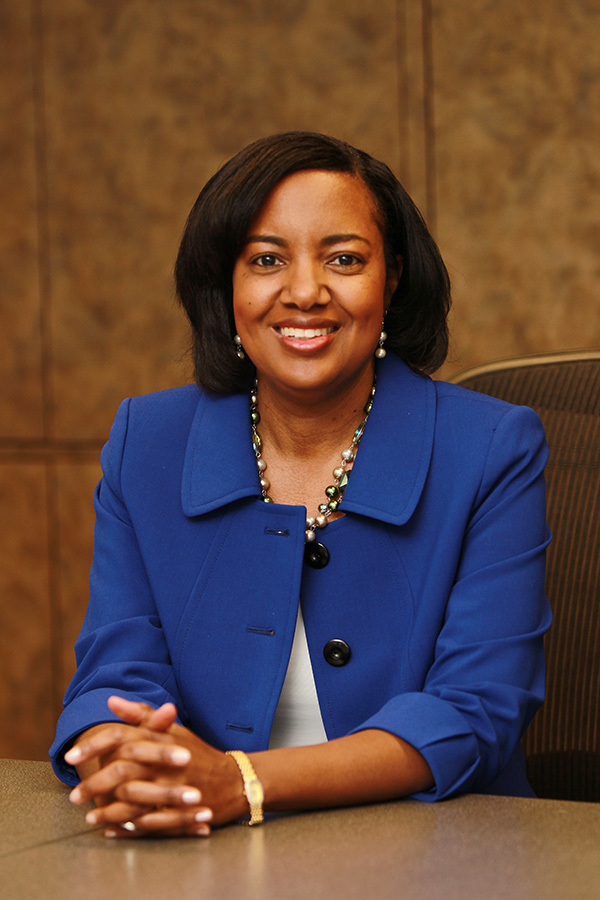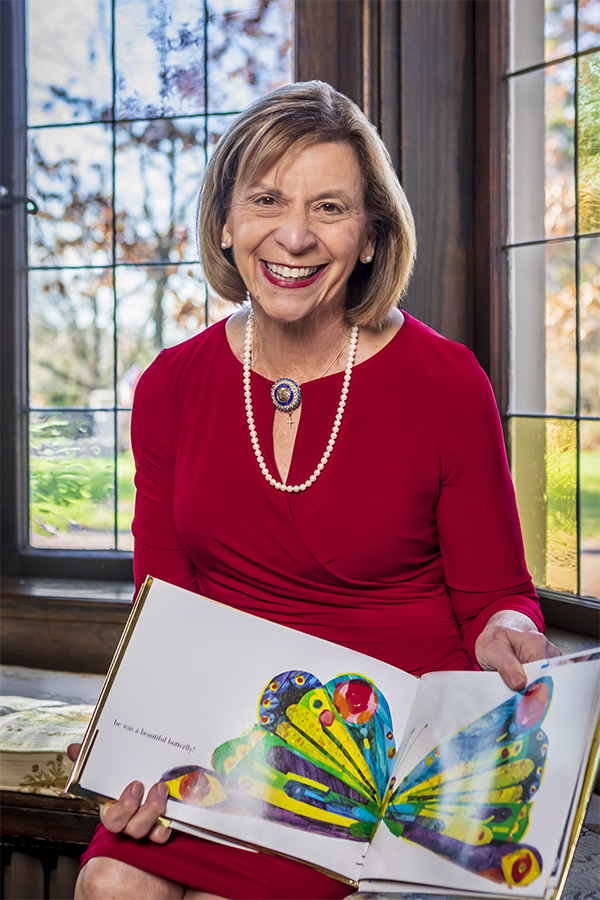Crane Excellence in Early Childhood Awards
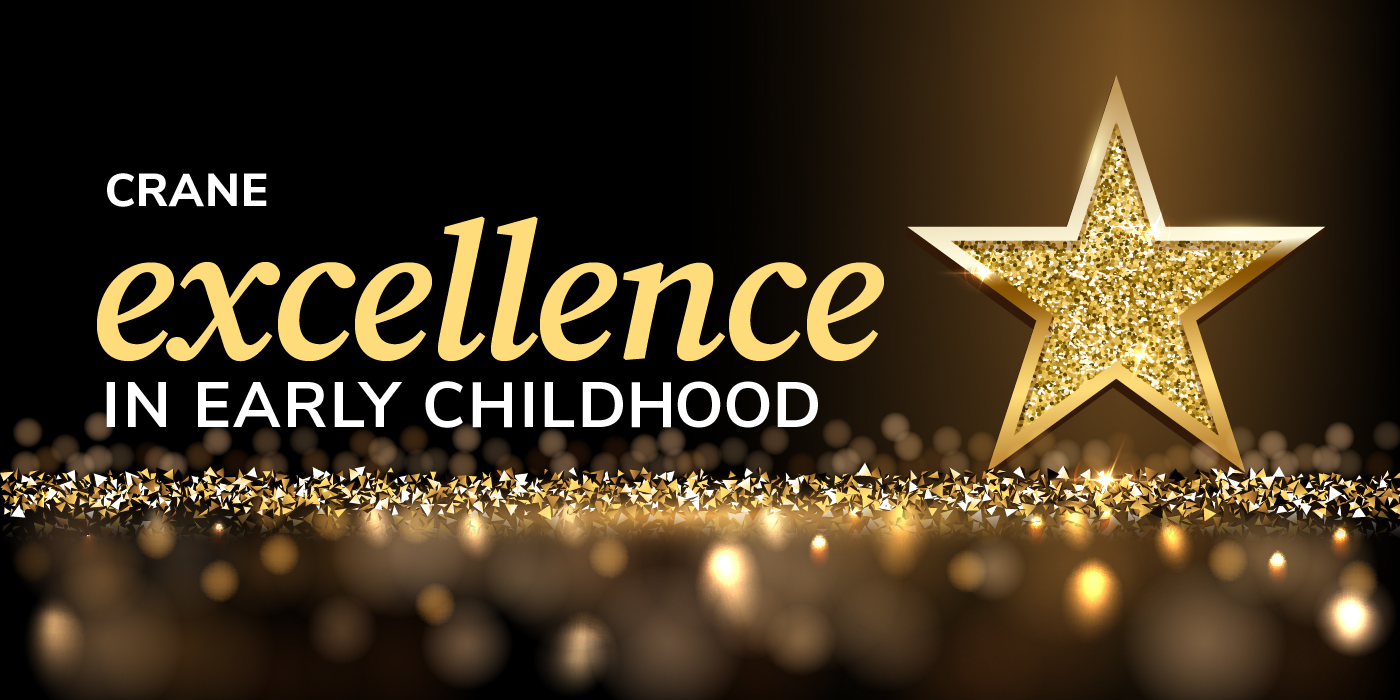
In 2023, the Crane Center for Early Childhood Research and Policy began its annual Crane Excellence in Early Childhood Awards. These awards recognize individuals who have consistently demonstrated leadership, innovation, commitment to equity, and the ability to achieve meaningful results or impacts for Ohio children in early childhood research, practice, or policy.
2024 AWARD WINNERS
Practice award: Melissa Anderson–Johnson
The practice award for Excellence in Early Childhood was presented to Melissa Anderson–Johnson for demonstrating a commitment to high-quality early childhood education, for decades of service to Ohio families and children, and for advancing the field of early childhood education practices.
Melissa Anderson-Johnson is the current center manager at Starting Point Learning Center. Her grandparents opened the center in 1995 on the south side of Columbus, and Ms. Anderson-Johnson has been a part of the center ever since.
Ms. Anderson-Johnson is dedicated to serving children and families. To serve children with the greatest need, she only accepts children who receive Publicly Funded Child Care. Under her leadership, the center offers high quality early education. She is dedicated to her teaching staff and holds high expectations for them in their practice, and she herself is a model of positivity and kindness.
Each year Ms. Anderson-Johnson takes her staff on a retreat to learn and build relationships. On a recent trip to the Bahamas, her staff presented her with an award they called “Building a Legacy” to honor her commitment to early educators, young children, and their families. Part of this legacy includes former students who now bring their own children to Starting Point or return as teachers.
As another example of Ms. Anderson-Johnson’s commitment, she purchased a large church adjacent to the center in 2019. In a short time, she started Family, Adolescent, and Child Community Engagement Services (FACCES). This nonprofit community center allows families to be engaged long after their children transition out of child care and is open to all families in the community.
Under her leadership, FACCES has become a hub offering resources for wellness and economic stability that includes workforce development, mental health services, education, and other support services.
What prompted you to pursue this career path?
I commenced my career in early childhood education influenced by the exemplary work of my mother, Rolinda Hameed, who assumed the role of the inaugural director at Starting Point Learning Center in 1995. Her deep-seated enthusiasm for educating young children resonated not only through her professional commitment but also in the profound impact she had on children, me included. Observing her unwavering dedication was a privilege. Witnessing her educational journey from an associate to bachelor’s degree while diligently serving at the preschool and caring for me and my siblings inspired me to follow her lead. I began as a teacher in various programs and eventually took on the director’s mantle in 2005, upholding her legacy of excellence.
What achievement in early childhood education are you most proud of?
My greatest source of pride lies in establishing a lasting legacy at Starting Point Learning Center, evident in former students entrusting us with the education of their own children. The return of past students as teachers further validates the enduring impact we have had. Additionally, attaining the highest Step Up To Quality Rating, securing NAEYC accreditation, and maintaining full enrollment of children from families facing economic challenges are accomplishments I hold dear. Our work through the Family, Adolescent, and Child Community Engagement Service (FACCES) has expanded our reach to support more children and families, providing essential activities aligned with educational standards. I am particularly proud of initiating the FACCES Recruiting Hub, which supports early learning programs in hiring qualified educators and offering training. This initiative has been instrumental in strengthening our team and ensuring we have the best educators to guide the children under our care.
Who has influenced you the most?
My approach and leadership have been profoundly influenced by exceptional individuals who I have had the privilege of engaging with in early childhood education and business leadership. Each influence, from Tim Johnson’s persistence to Renee Bolding’s emphasis on accountability and Kyedeana Mosely’s priority of children and families, has sculpted my leadership style. Noteworthy figures like Betty Baugh, Linda Neugebauer, Diane Benette, Roberta Bishop, Mankia Williams, Brenda Rivers, Kara Wente, Jerri Mahone, and my grandparents Bob and Mary White have been pivotal in shaping my values and aspirations.
What challenges in early childhood education should others be mindful of and strive to resolve?
A growing concern in early childhood education is the prevalence of silos within the field, hindering effective collaboration. The lack of alignment between governance and funders is impeding collaboration efforts. It is crucial for the sector to consolidate actions, establish best practices, and empower educators and families to foster children’s development by fostering a culture of transparency and collaboration throughout the field.
Research award: Dr. Mary Wagner
The research award for Excellence in Early Childhood was presented to Dr. Mary Wagner for demonstrating a commitment to and effectiveness in conducting research or evaluation related to early childhood development, and improving the well-being of young children and their families.
Dr. Mary Wagner is an associate professor of psychology at the University of Dayton and a leading early childhood researcher. Her research has produced profound insights on understanding early childhood development, particularly in executive functioning and math skills.
Since joining the University of Dayton over a decade ago, Dr. Wagner has worked with Preschool Promise as well as with agencies, teachers, and coaches to ensure that early education in Dayton is equitable and high quality. She has studied a widely used training model named Conscious Discipline and given practitioners and researchers information on how to implement the program for better outcomes on children’s executive functioning and academic skills.
Since the start of Dr. Wagner’s career, she has focused on using equity in her research practice by conducting research that 1) is situated within community contexts, 2) reflects children’s experiences in the everyday environments where they spend time, and 3) reflects the diversity of the local population.Her current work, which is funded by the Eunice Kennedy Shriver National Institute of Child Health and Human Development, is expanding understanding of early math development. She has identified a unique skill set that may be underlying the many young children’s challenges in math skill development and is currently examining this phenomenon and how to help young children better learn math.
What started you in this line of work?
In college, I was unclear of what direction I wanted to go with my career. I figured that I would probably go into counseling and work with children because that seemed like the only path for me with a psychology degree. My advisor sat me down one day and told me that sure, I could do that, a lot of people do. But, he said, there are not many people who actually love writing papers and doing statistics. He thought that I could make a greater contribution to my field by capitalizing on my interests and pursuing a career in research. I had never considered pursuing a Ph.D. before that conversation and really did not know the first thing about academia, so I took a summer research position in a child development lab at the University of Louisville to learn more. That summer, I fell in love with the idea of working behind the scenes as a researcher and statistician to really understand how to best support young children’s development. I then completed a Ph.D. in developmental psychology, where I developed a research partnership with the local Head Start agency. I wanted to really work at the intersection of psychology and education, so I completed a postdoctoral fellowship at the Peabody College of Education at Vanderbilt before taking a position at the University of Dayton. By luck and happenstance, the former president of the University of Dayton was working full-time in early childhood advocacy and reached out to me after my job interview to start connecting me to the early childhood community in Dayton. I met Robyn Lightcap, executive director of Preschool Promise of Montgomery County, and started collaborating with her team and other agencies, teachers, and coaches in early childhood. We have been partnering on research studies that are important to our local community for 12 years now. I am endlessly grateful for the opportunity to partner with the passionate early childhood education community in Dayton!
What’s something in your work in early childhood that you are most proud of?
Historically, much of what we “know” or “think we know” about child development is based on university laboratory studies of mostly white, high-income families, which is a critical problem as these findings are not representative of our population as a whole and of the diverse environments in which children develop. I made a commitment my first semester at the University of Dayton to contribute to the diversification of child development research by making sure that all research we conduct: 1) is situated within the community context 2) reflects children’s experiences in their everyday environments where they spend their time, and 3) reflects the diversity of our local population. Of course, there are many challenges to upholding this commitment, including navigating school-determined timeframes and having patience and flexibility when things often do not go as planned. But I am proud of this commitment that my students and I have made to ensure that our research represents the diversity of children and their actual experiences in our community.
What challenges are facing the field of early childhood that you want others to be aware of and work towards solving?
One of the challenges that I have been thinking about a lot in the past few years is the challenge of bringing preschool attendance rates back up to pre-COVID levels. Year after year in my work, I find that children’s attendance rates in preschool are a significant predictor of their growth in school readiness skills and their kindergarten readiness assessment scores, even when controlling for many other factors that influence these skills. The barriers to attendance are many, and it is often the children who might benefit the most from preschool whose families experience the most barriers. We have found an attendance rate decrease in the years since COVID that has particularly affected Black children and children from low-income homes. We, as a field, need to be thinking about innovative ways to improve classroom quality so that all children feel welcome in preschool and to remove barriers to attendance so that families have the resources they need.
Policy award: Shannon Jones
The policy award for Excellence in Early Childhood was presented to Shannon Jones for demonstrating a commitment to advancing policy change that improves the well-being of young children and their families.
Shannon Jones is currently serving as senior advisor to Groundwork Ohio, following her nearly eight-year tenure as its president and CEO. During her tenure as CEO, Ms. Jones made Groundwork Ohio a highly effective and respected leader in public policy and advocacy. Under her leadership, the organization championed policies that improve early learning and healthy development for Ohio’s youngest kids.
Prior to joining Groundwork, Ms. Jones served as an Ohio state representative and a state senator, where she was chosen by her colleagues for key leadership posts in both chambers. She is the only woman in her party, and the first in Ohio history, ever to achieve that distinction. Ms. Jones has been a champion in tackling the tragedy of infant mortality in Ohio. She co-chaired the first Commission on Infant Mortality in the 131st General Assembly, which culminated in the passage of Senate Bill 332 to implement evidence-based practices to reduce infant mortality. While serving in the Ohio House, she successfully backed a law requiring booster seats, saving thousands of kids from preventable, life-threatening injuries. Ms. Jones currently serves as a Warren County Commissioner and as a board member for the Health Policy Institute of Ohio, the Warren County United Way, the Warren County Foundation, and the County Commissioners Association of Ohio. She also serves on the Human Services and Education Committee for the National Association of Counties.
What’s something in your work in early childhood that you are most proud of?
I am incredibly proud of building a passionate and fearless team at Groundwork Ohio that relentlessly advocates for our youngest and most vulnerable children. Their unwavering dedication serves as a constant reminder that a brighter future is not only possible, but within reach. Advocacy in this space is not for the faint of heart, yet the professionals at Groundwork Ohio continue to inspire with their persistence and tenacity. They are champions for change, and their commitment gives me great hope for a future where all children have the opportunity to thrive.
What’s most surprised you in your work?
Despite widespread agreement that children are our future, too few people in power operate as though this is true. After decades of robust research proving the profound impact of investments in the earliest years, policymakers still hesitate to commit the necessary resources to ensure the healthy development of our youngest children and the families that care for them. It’s astonishing that, despite clear evidence, many leaders prioritize taxpayer funded stadiums for multi-millionaires over proven strategies that lift families out of poverty and prepare children for lifelong success. The gap between what we know and what we do is a persistent and frustrating challenge that underscores the need for continued, determined advocacy.
What challenges are facing the field of early childhood that you want others to be aware of and work towards solving?
Developmentally appropriate care and quality early education require significant and sustained investment from the public investor, yet policymakers remain reluctant to commit necessary resources even when these investments yield enormous returns for families and society. Our systems are still primarily designed around school-aged children, leaving our youngest learners — those in the critical phase of brain development — overlooked by policymakers. To ensure every child can reach their full potential, we must elevate the urgency and priority of investing in these foundational years. It’s essential for all of us to hold our leaders accountable for building a robust, equitable system that meets the unique needs of our youngest children so that families, communities, and businesses can truly thrive. We must build a movement to demand change and that requires each and every one of us.
2023 AWARD WINNERS
Practice award: Rebecca Love
The practice award for Excellence in Early Childhood was presented to Rebecca Love for demonstrating a commitment to high-quality early childhood education, serving thousands of Ohio families and children, and for advancing the field of early childhood education practices.
Rebecca Love is the director of Early Childhood Education for the Franklin County Board of Developmental Disabilities. She has served in the field of early childhood for over 50 years, providing services for thousands of children and their families, and leadership to early childhood staff and partners throughout Franklin County and Ohio. In this role, Becky developed one of the nation’s finest early childhood programs, serving children with and without disabilities in an inclusive model of center- and home-based services. The U.S. Department of Education’s assistant director visited Becky’s program and commented on the example it sets for programs throughout the country. In her extensive career, Becky has mentored many early childhood professionals. The ripple effect of this cannot be overstated. Many of those who learned from Becky are now in leadership positions, mentoring others throughout the field in high-quality, evidence-based practices. In addition to her work with other professionals, one of the most important tenets in Becky’s work is engaging parents and family members. She and her staff established a “Parents Plus” program to support parents who have special needs, and she organized services in different areas of Franklin County to make services more accessible for parents, grandparents, and other family members.
What started you in this line of work?
I’ve always had a love for children, and I always wanted to be a mom and teacher. A housekeeping corner was always a fixture in my play space. Two children and the only girl, I played alone a lot and was filled with imagination.
My mother was a teacher assistant at Alexander Graham Bell School for the Deaf in Cleveland, Ohio. I shadowed her a lot. I attended Ohio University and completed a degree in Hearing and Speech Sciences and expanded my degree in Early Childhood and Special Education.
Even after 50 years in the career field, I am still wedded to my love for children.
What is something in your work in early childhood that you are most proud of?
I am most proud of the amazing staff I have had the good fortune of working with over the years. Our staff are truly committed to supporting children in knowing their potential, and to helping children and their families become self-advocates. I find joy in creating learning and work environments where staff, children and their families feel empowered, competent, and confident. That’s the best!
Who are your greatest influences?
My absolute greatest influence is the work of Loris Malaguzzi, founder of the schools of Reggio Emilia, Italy. His work was inspired by World War II and the impact on this little town in northern Italy. “Eyes Over the Wall” was his mission to give voice to the children affected by the war by working alongside families and the community to create schools for children to experience joy, possibilities, discovery, curiosity, competence, and to believe in themselves. These schools were supported by families, by empowered teachers, and by the community, all of whom believed in the power of children.
I am also inspired by his poem “The Hundred Languages of Children,” which recognizes the rights given to children and the many ways children communicate. It is inclusive. This way of thinking about children and community inspired me to find that likeness in our school community. Our program is built on the influences of Reggio Emilia, and this approach is embraced as a way of thinking about teaching and learning. I am forever grateful for my introduction to his work in 1991.
What challenges are facing the field of early childhood that you want others to be aware of and work toward solving?
My greatest fear for children is that the joy of learning will be taken away from childhood. Children are losing childhood in the race to meet competency standards without mastering the foundations of learning (self-regulation, relationship building, body awareness, social play) – not unlike building a house without a foundation. The complexities of the lives of young children are a reality that must be integral to the professional development provided to educators. I believe in recognizing how each child learns as well as each child’s unique strengths. It takes time, patience, and a commitment to engage children at their level of interest, and to “meet children where they are.”
Research award: Dr. Monica J. Mitchell
The research award for Excellence in Early Childhood was presented to Dr. Monica J. Mitchell for demonstrating a commitment to and effectiveness in conducting research or evaluation related to early childhood development, and improving the well-being of young children and their families.
Dr. Monica Johnson Mitchell is a professor of pediatrics in Behavioral Medicine and Clinical Psychology at Cincinnati Children’s Hospital. Dr. Mitchell also serves as the Co-Director of INNOVATIONS in Community Research and Evaluation. In these roles, Dr. Mitchell collaborates with many organizations and agencies to translate research, train and develop their leadership, and advance evidence-based child health programs in the community. She also leads employee volunteerism and community engagement, outreach, and giving. Across two decades of experience, Dr. Mitchell has evaluated programs and implemented evidence-based practices to improve child and community health outcomes. Under her leadership, the INNOVATIONS team has worked directly with 15 school districts and child-focused community agencies in efforts to address social, educational, and health disparities in underserved and vulnerable populations. Through Dr. Mitchell’s leadership, Cincinnati Children’s is providing community health outreach and education to more than 30,000 children and families each year across the region. She also coordinates the institution’s commitment of more than $11.5 million in community development, capacity building, and workforce investment in Greater Cincinnati.
What started you in this line of work?
Early on I knew that I wanted to enter a field that would impact children in a positive way. In high school and college, I worked with children in camps, after school programs, and as a preschool teacher. These experiences shaped why I decided to become a child psychologist and researcher. These experiences were foundational to the development of INNOVATIONS in Community Research and Program Evaluation, a program that I lead at Cincinnati Children’s Hospital. Our team at INNOVATIONS works with community organizations and programs to answer important questions to advance health, development, and outcomes for children. Our most impactful work over the past 20-plus years has been collaborating with early childhood educators, school districts, and other key stakeholders to understand best practices in literacy and language development, social emotional wellness, kindergarten readiness for preschool children, parent engagement, as well as their longitudinal outcomes. We’ve also worked with collaborators to address barriers to preschool enrollment and engagement.
What’s something in your work in early childhood that you are most proud of?
I am most proud of the partnerships that I’ve built. Collaboration is critical to being a good evaluator and researcher. Partnership requires patience, humility and good listening skills. It requires being intentional with capturing the stakeholder’s “voice” and using this voice to ensure authenticity in the work and to guide decision-making. There is no “I” in “team,” and I am proud of the incredible work that our team has completed over the years. More than half of our staff have worked together for more than 10 years and our ties with the early childhood community are strong. Our goal has been to support the youngest and most vulnerable in our community by learning, listening, and working together.
Who are your greatest influences?
My parents have been wonderful influences and unconditionally supportive. I get compassion for humanity and the application of social science to real world problems from my mother. She is a person who genuinely cares about people, is an amazing listener and a community leader. My father shaped my technical and critical thinking. His superpower was that he could take complex topics and describe them in ways that anyone could understand them. I am inspired daily by members of my team, including Alisha, Aubrey, Peter, Jennifer, Yolanda and Lori. We’ve been on the long journey of improving early education together. And of course, my collaborators: Chara from Cincinnati Preschool Promise; Vera and Brian from Cincinnati Public Schools; Greg, Tiana and Kristy from the Cincinnati Imagination Library; and Success By 6 and United Way. There are many people, too many to name, who are passionate about making a difference in the field and with children. I must also credit my mentors, Lori, Scott, Jane, and others, who have inspired me while opening doors and shaping my direction and career.
What has most surprised you in your work?
When I first began my work and research 20-plus years ago, not many people were talking about quality preschool or school readiness. There was support for early literacy and social emotional development but certainly not to the level that we are prioritizing these areas in education today. It has been amazing to see how much more the public now knows about the critical brain development that happens when children are young. The mainstream media are talking more about the importance of reading to children, developing language and social skills during the preschool years, and investing in children. I am also surprised about the evolution of advocacy and policy efforts for initiatives that support early education and young children, even though more support is still needed. It is our collective vision and work that creates synergy in the field and progress for children.
What challenges are facing the field of early childhood that you want others to be aware of and work towards solving?
Despite our best plans and hopes, we must work together to sustain momentum. The most critical challenge is securing funding and support for early childhood and early education efforts. Early education is still adjusting from the COVID-19 pandemic when centers closed classrooms and staff sizes decreased. Without funding, there will be more attrition and fewer opportunities for children to learn and develop and for parents to access programs and services.
Recruiting and retaining exceptional talent in the field of early education is another challenge and is increasingly difficult given the economic and market conditions. To address the shortage and retention of early childhood educators, we will need to highlight opportunities, benefits, and pathways for those pursuing careers in early childhood.
We will also have to develop innovative models, supported by private and public funding. The success of early education and child care models will depend on the degree to which early childhood professionals earn the same level of pay and benefits as other employees in fields that require comparable levels of education and experience.
These challenges may sound overwhelming, I’ve seen partners work collaboratively to solve problems like rolling out Step Up Quality in 2012, launching the Kindergarten Readiness Assessment in 2004, getting the Cincinnati Preschool Promise Levy passed twice, distributing more than 100,000 books mailed through the Hamilton County Imagination Library, among many others. Having supported these accomplishments, I am confident that we can solve these challenges with proper strategic thinking, collaboration, and advocacy.
Policy award: Ohio First Lady Fran DeWine
The policy award for Excellence in Early Childhood was presented to Ohio First Lady Fran DeWine for demonstrating a commitment to advancing policy change that improves the well-being of young children and their families.
Ohio First Lady Fran DeWine has always been a determined advocate for children and her impact extends across the state of Ohio. As a mother of eight and a grandmother of 27, First Lady DeWine brings motivation from her own experiences to her role as an outspoken advocate for early childhood literacy and support for children and families. When she became the first lady of Ohio, she used her platform to focus on improving literacy among young children by partnering with the Dolly Parton Imagination Library of Ohio. She knew that her own grandchildren loved receiving a free book in the mail each month through the program, and she made it her mission to expand Imagination Library throughout the state, and to scale it to every single county. Because of her efforts, every child under the age of five in all 88 Ohio counties is eligible to receive a free, age-appropriate book in the mail every month. Through strong partnerships with local public libraries and affiliates. Ohio’s Imagination Library has more than 59% of the state’s children enrolled in the program, and over 13.7 million books have been distributed in Ohio since 2019.


